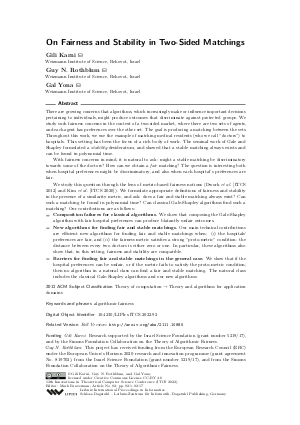LIPIcs.ITCS.2022.92.pdf
- Filesize: 0.64 MB
- 17 pages

 Creative Commons Attribution 4.0 International license
Creative Commons Attribution 4.0 International license































Feedback for Dagstuhl Publishing